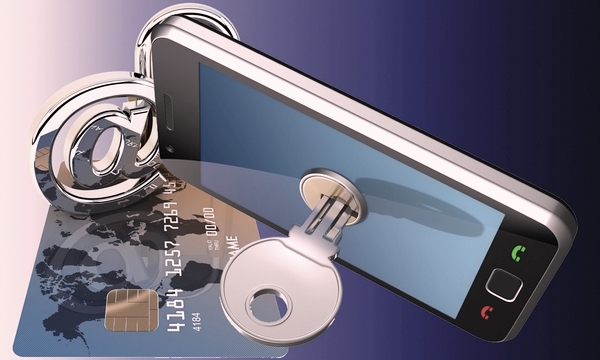Protect Your Mobile Phone Data in these 6 Simple Steps
26 October 2013
The smartphone is supplanting the home computer as the technological device most used by most people. Chat, work, bank, take pictures, Facebook, video, everything can be done on a smartphone. Lots of personal information is stored in a smartphone, outside of phone numbers and email addresses as well. Documents, login information, passwords, and more are on the browser just waiting to be stolen. Once this happens, there is more at stake than simply the device, but the privacy of the user as well. Insuring your mobile phone will help protect the handset but the data itself cannot be protected as part of most standard insurance policies. As identity theft continues to climb and thieves become more adept, keeping a smartphone protected is paramount. Here are five excellent suggestions to protect a smartphone from would-be thieves.

1. Keep Bluetooth turned off most of the time.
Bluetooth is a wonderful device and a better concept. Since most smartphones have Bluetooth on all the time, it is a great opportunity for would-be hackers and thieves to access personal and private information. In Bluetooth is running, it automatically connects, even if the phone is not clearly in view. This is the way hackers and viruses make their way onto a phone, along with taking personal information. Keep a close and watchful eye on Bluetooth connections, particularly in public. Connect only to devices and people that are trustworthy. It will save a lot of headaches in the future.
2. Get your Smartphone insured
Mobile phone insurance not only covers the handset against accidental damage but also against theft and with some insurers against loss too. You can get further information on Smartphone insurance coverage levels at FCA. Our own award-winning coverage levels are also very extensive.
Details of Protect Your Bubble Mobile Phone Insurance.
3. Free Wi-Fi is great, but there are some limitations.
Unencrypted free Internet is one of the greatest inventions of the modern world, and its ubiquity makes it tempting to use, saving time on a data plan. An unencrypted connection, on the other hand, is never as secure as one would like it to be. In fact, thieves love free Wi-Fi for that very reason. This is not to say to shy completely away from free Wi-Fi but instead use it wisely. Save the online checkout for home and the same can be said for personal and private emails. If it can be connected for free, it can be intercepted as well.
4. Use password protection.
There are several apps available to lock screens on phones, but a password is still one of the best to use. The same common sense password rules apply: do not write down a password, do not share a password, and use different passwords for each different device. When choosing a password, pick something that has a variety of letters, numbers, and even symbols to make the password difficult. Book titles are an excellent choice with a few numbers added for good measure. This will make discovering passwords very difficult. So difficult in fact, most will give up rather than spend time trying to break into the phone.
5. Spam, it's not just for email and Monty Python.
Hackers are becoming more and more sophisticated, but the techniques will remain virtually the same. Text messages from a bank about an account are normally attempts to gain access to personal data from the bank. If there is doubt about the message, call the bank and ask. Many banks will not send text messages of any sort because of this. Also, if the text is from a bank or financial institution the phone owner does not do business with, it is absolutely a scam. Delete these texts.
6. Regular updates are important.
Regular updates are a pain, especially because of the time required to download them. These updates frequently have bug fixes and updated protection for phones. OS manufacturers are constantly battling security exploits, so these updates are the first line of defense against malicious acts. Keep all updates regular, and install fresh software if possible each time.
While little can be done if a phone is stolen, these preventative measures will, at minimum, keep thieves and hackers at bay. Thieves do not want to work at getting into a phone any more than they want to work at getting into a home, so securing personal information is the first step in protecting the same information.